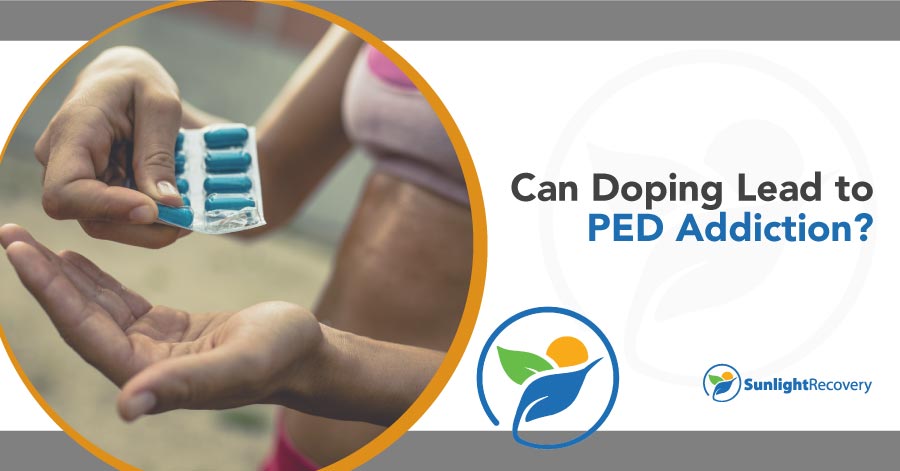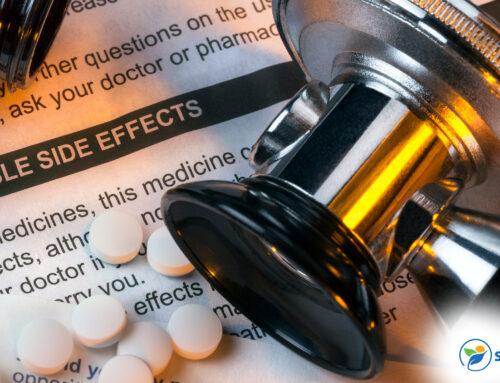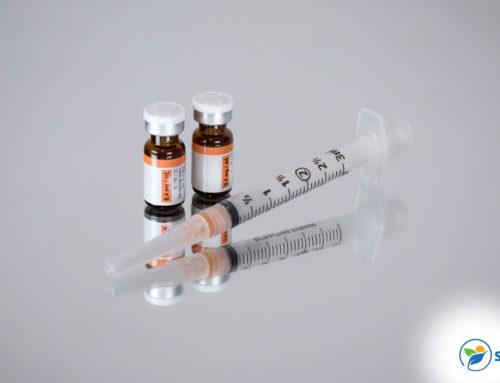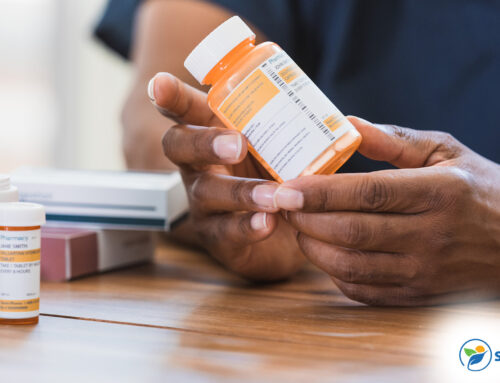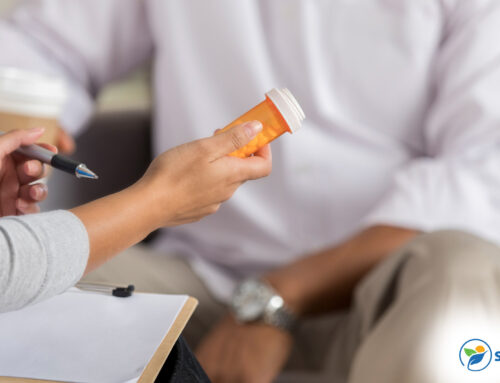Can Doping Lead To PED Addiction?
The use of illegal Performance Enhancing Drugs (PEDs) is common in sports, and athletes who compulsively abuse these drugs risk serious health issues.
“Doping” is a slang term to describe the consumption of Performance Enhancing Drugs (PEDs) to enhance physical performance for a sport. According to the American Family Physician, an estimated 3 million Americans are active users of PEDs, with the most commonly abused drug being testosterone-based anabolic steroids. Athletes who become obsessed with their physical performance can develop a steroid use disorder, which can cause a wide variety of negative side effects, including premature death. Professional medical help may be needed to address the emotional reasons for the compulsive behavior, as well as to restore the body’s natural balance.
What Are PEDs?
A PED is any illegal substance taken to improve the human body in such a way that athletic performance is enhanced. The major types of PEDs include:
- Hormonal PEDs: These substances provide the body with extra amounts of hormones in hopes of building more muscle and improving the cardiovascular system. Common types of hormonal PEDs include testosterone-based anabolic steroids, human growth hormones (HGH) and erythropoietin.
- Stimulant PEDs: Users take these PEDs to improve mental focus and energy levels. Common examples include amphetamines, cocaine, ecstasy and methylphenidate (Ritalin).
- Diuretic PEDs: These types of PEDs force the body to expel water and increase urination. Users take them to manipulate their body weight and mask the consumption of other illegal PEDs.
Many types of PEDs are injected into the body, while others are ingested or applied topically. The dosages required to achieve athletic results can be extreme, up to 100 times greater than what a doctor would prescribe for a true medical condition.
Most professional and collegiate athletic associations prohibit the use of PEDs. These organizations use routine and randomized testing to identify athletes using PEDs. It’s also important to note that consuming PEDs for non-medical reasons usually violates federal and state laws for both professional and amateur athletes. Consuming any illegal substance outside a medical need to enhance athletic performance can be considered “abuse.”
It’s important to distinguish illegal PEDs from legal Performance Enhancing Substances (PES). Common PES that can be purchased from most retail stores include protein powders, creatine, amino acids and DHEA. Consuming these legal supplements is generally approved and even encouraged in the athletic community. However, according to the National Institute of Health, “much less is known about the possible adverse mental, physical and social health outcomes associated with legal PES use, particularly among young adults.”
Are PEDs Addictive? What Is PED Compulsive Abuse?
Many athletes ask, “can you get addicted to steroids?” and “are steroids addictive mentally or physically?” Most chemicals associated with PEDs, such as hormones, are not known to be physically or mentally “addictive.” However, it’s common for PED users to “compulsively abuse” these drugs — a condition called “steroid use disorder.”
The National Institute of Drug Abuse defines steroid use disorder as “continued use [of PEDs] despite adverse consequences” and impacts around 32% of PED users. While PED users may not be medically addicted to the chemicals they’re consuming, they may become addicted to the physical improvements they’re seeing in their bodies. Athletes believe they see an improvement in their performance, so they continue using the drug despite the side effects they’re experiencing and the risk of being caught by their athletic organization.
When athletes attempt to stop or reduce their usage of PEDs, they may experience symptoms of physical withdrawal, as well as a noticeable degradation in their sports performance. Without proper support, these negative experiences often encourage the athlete to resume taking the PED, continuing the compulsion.
What Are the Dangers of PEDs Abuse?
The physical and emotional damage caused by chronic, long-term use of PEDs, especially testosterone-based anabolic steroids, is well-documented in the medical field. Health risks of PEDs include:
- Mood swings, severe irritability or aggressiveness (also known as “Roid Rage”)
- Breast growth (in men)
- Sexual dysfunction
- High blood pressure
- Excessive fats in the blood
- Heart disease
- Damage to the liver, kidneys and heart, including cancer
The compulsion to use PEDs is often combined with or amplifies compulsions around gym attendance and dietary restrictions. PED use contributes to an overall obsession with sports improvements, and the athlete is willing to sacrifice other activities, time and money to pursue that obsession.
PED use can also cause athletes to push their bodies beyond physical human limits by masking injuries, encouraging over-training and not providing the body adequate time to rest and recover from previous workouts. This may lead to increased injury rates, including traumatic career-ending injuries.
After the athlete stops using PEDs, the symptoms of withdrawal can be severe and include the following:
- Fatigue
- Restlessness
- Loss of appetite
- Insomnia
- Reduced sex drive
- Steroid cravings
- Depression, which may lead to suicide
How Is PED Abuse Treated?
According to the National Institute of Drug Abuse, over half (56%) of PED users never tell their family physician about their drug use. This means most PED users are starting and stopping PED usage without the help of trained medical professionals, choosing instead to consume the advice of gym buddies and internet strangers.
Treating PED abuse requires resolving the underlying factors driving the person’s compulsive behavior and obsessions around their body’s appearance and/or performance. This usually requires help from a professional psychological therapist.
A recovering PED user may need help from a doctor to restore their body’s natural balance of chemicals and hormones and repair any damage caused to body systems. Medical assistance may also be needed to overcome the short-term symptoms of PED withdrawal.
Sunlight Recovery Is Here To Help
If you or a loved one are suffering from compulsive PED abuse, professional medical help may be needed to end the use of PEDs and restore the body’s natural functions. The counselors and medical staff at Sunlight Recovery are available 24/7 to help you understand the options available to you. Contact us at (888) 402-3647 to learn more about our drug addiction recovery programs.


